Zenlens®scleral lenses
Comprehensive offerings and parameters with an efficient, simple design.

Key features
- Multifocal and toric optics
- Oblate and prolate designs
- Four diameters: 14.8 mm, 15.4 mm, 16.0 mm, 17.0 mm
Fit custom with confidence
When a parameter is modified, SmartCurve™ technology automatically adapts to ensure most other design attributes remain consistent.1,2,6
- Streamlines lens adjustments1,2
- Reduces calculations and chair time3
- Assists in a predictable fit3
SmartCurve™ technology1
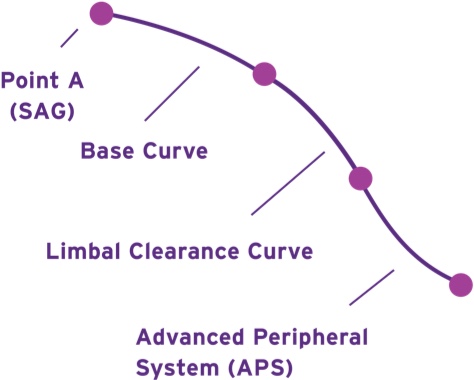
In this example, SAG is correct, but there is insufficient limbal clearance
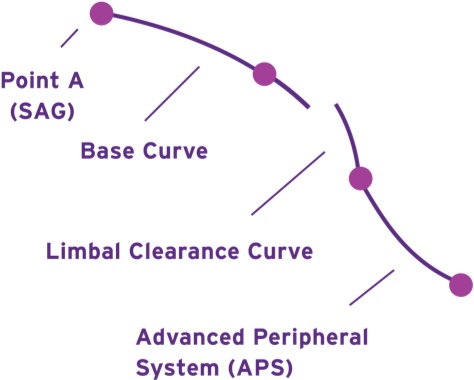
Parameters auto-adjust when limbal clearance curve is increased
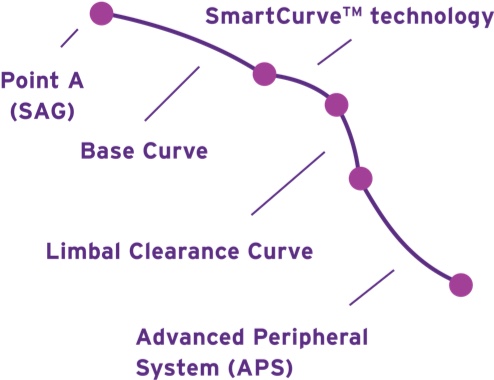
SAG and scleral alignment remain unaffected
The Advanced Peripheral System (APS) with Quad-Sym technology has a generous landing zone that can be adjusted to better align with the scleral shape.2,4,6
- Can be ordered flatter or steeper
- Quadrant-specific edge lifts maintain alignment with the sclera in 4 meridians
MicroVault™ technology creates a flute or ripple that vaults up and over obstructions, such as pingueculae, to properly land on the sclera.2,4,6
- Consultants can support non-edge peripheral elevations
- Can be applied to any design that has stabilization
Discover the ingenuity of Bi-Elevation
Bi-Elevation is a useful Zenlens® design feature used to help create a 360° even landing on the sclera, which can be helpful for reducing instances of:5
- Lens decentration5
- Chamber fogging5
- Lens impingement5
- Conjunctival impression rings5
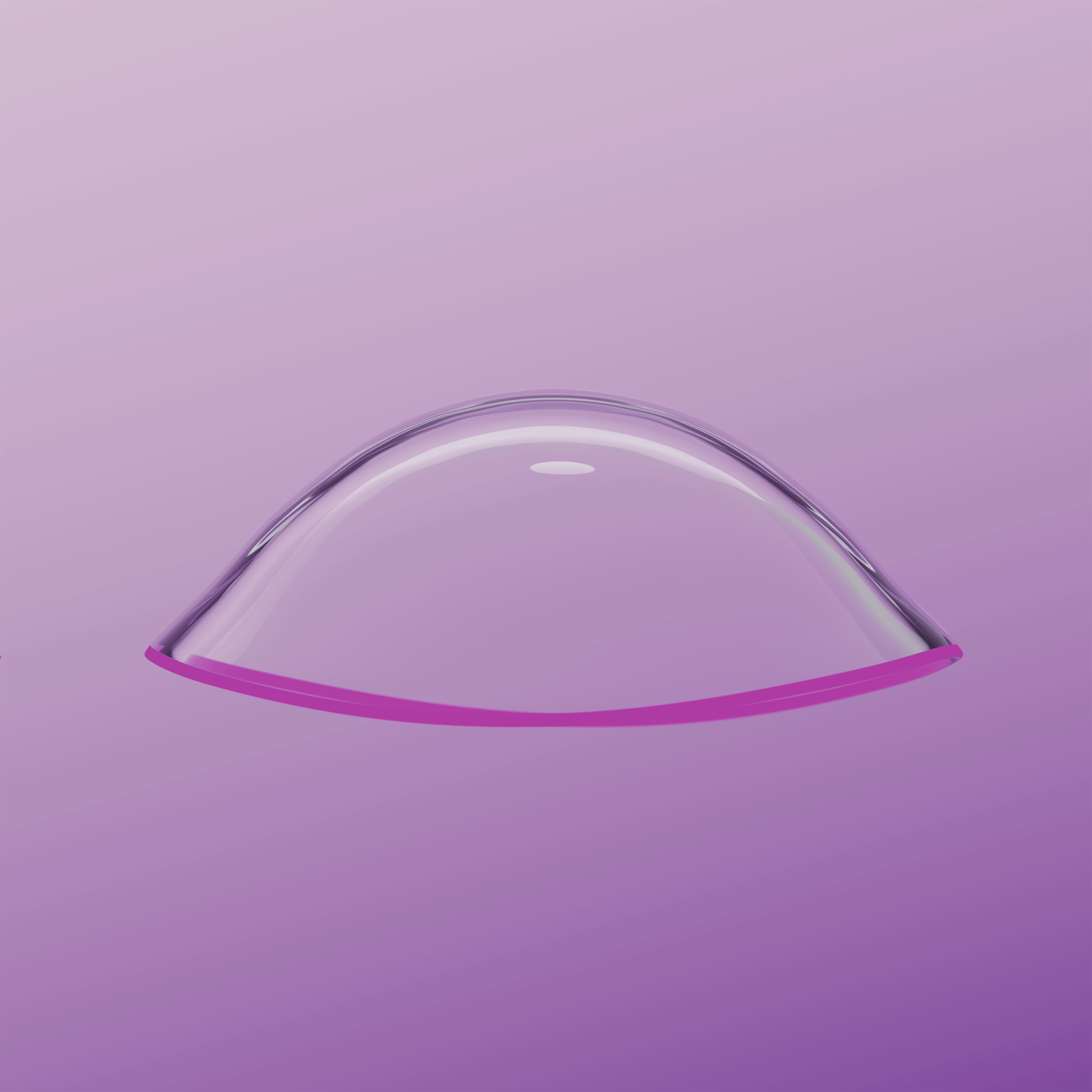
The Zenlens® multifocal scleral lens design aligns the near zone over the visual axis instead of the center of the cornea, which has been shown to provide clear vision in soft contact lenses.2,6,7
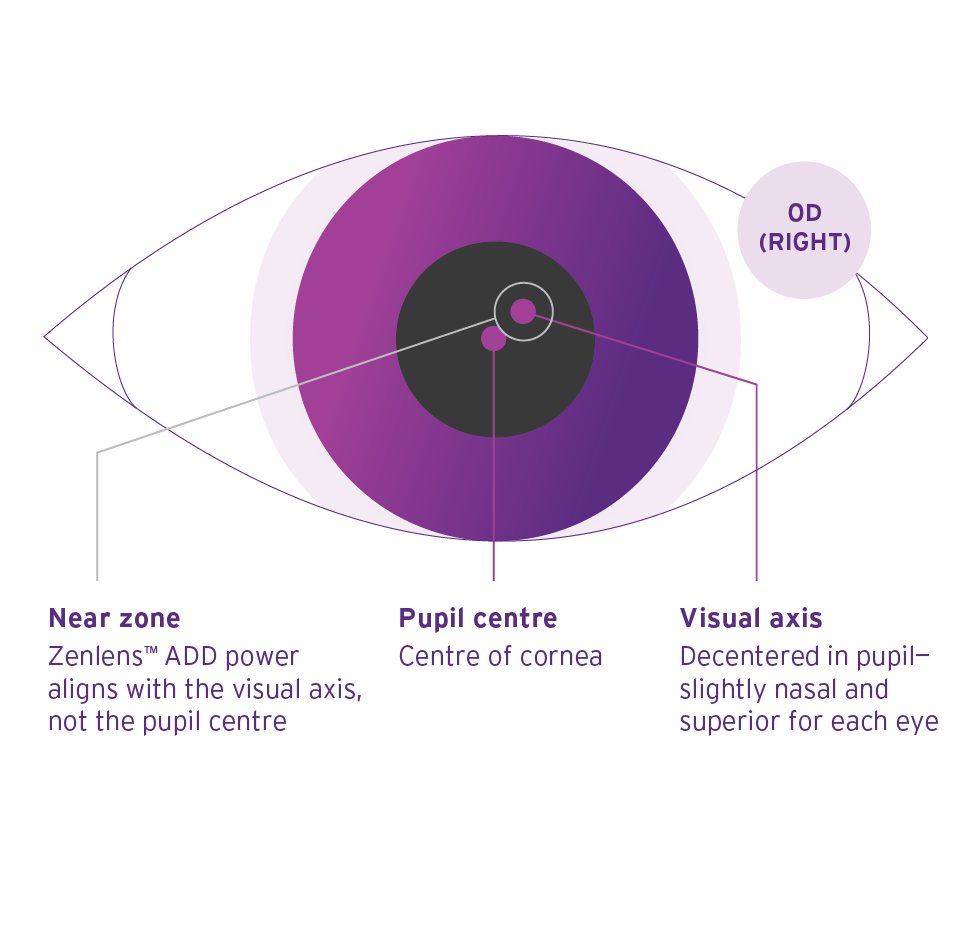
| standard customizable parameters | ||||
|---|---|---|---|---|
| Materials | Boston XO™ (hexafocon A), Boston XO2™ (hexafocon B) | |||
| Diameters | 14.8 mm | 15.4 mm | 16.0 mm | 17.0 mm |
| Sagittal depth range | 3500 to 5000 in 10-micron steps | 3200 to 6700 in 10-micron steps | ||
| Lens types | Prolate, toric | Oblate, prolate, toric | ||
| Also available All-toric Zenlens® fitting set | ||||
| Spherical powers | -20.00D to +20.00D | |||
| Advanced Peripheral System (APS) | Standard, Steep-10 to Steep-1, Flat+1 to Flat+20 | |||
| Options | Flexure control profile, Custom center thickness, Adjustable peripheral curves, Toric peripheral curves*, Front toric Rx*, MicroVault™ technology*, Bi-Elevation* *Customization option available at an additional cost |
|||
| multifocal customizable parameters | ||||
|---|---|---|---|---|
| Materials | Boston XO™ (hexafocon A), Boston XO2™ (hexafocon B) | |||
| Diameters | 14.8 mm | 15.4 mm | 16.0 mm | 17.0 mm |
| Optics | Center-near with adjustable zone size (both eyes) | |||
| Near zones | Variable center-near, 1.5 mm to 3.5 mm in 0.5-mm steps | |||
| ADD powers | +1.00D to +3.75D in 0.25D steps | |||
References:
-
- Creighton, Charley. SmartCurve™ Technology Review – Alden Optical, 30 Apr. 2015, pp. 1–7.
- Creighton, Charley, and Bernard Hallatt. 2018, pp. 1–6, Lens Design Report ZL 09182018 – Zenlens® Alden Optical 16 & 17mm.
- Shone, Thomas. Survey Monkey, US, US, 2017, pp. 1–15, Zenlens® Market Survey.
- Barnett Melissa and Lynette K Johns. Contemporary Scleral Lenses : Theory and Application. Bentham Science 2017.
- Sobczynski, Eric. Bi-elevation Support Document – Bausch & Lomb 18, Jul. 2022
- Creighton, Charley, and Bernard Hallatt. 2018, pp. 1–6, Lens Design Report ZR 09182018 – Zen®RC Alden Optical 14.8 & 15.4 mm.
- Ramdass, Stephanie, et al. Pacific University College of Optometry, Objective & Subjective Visual Response to Decentered Multifocal Optics.
Please read the instructions for use (IFU) for important product use and safety information.
Zenlens®, SmartCurve™, and MicroVault™ are trademarks of Bausch & Lomb Incorporated or its affiliates.
